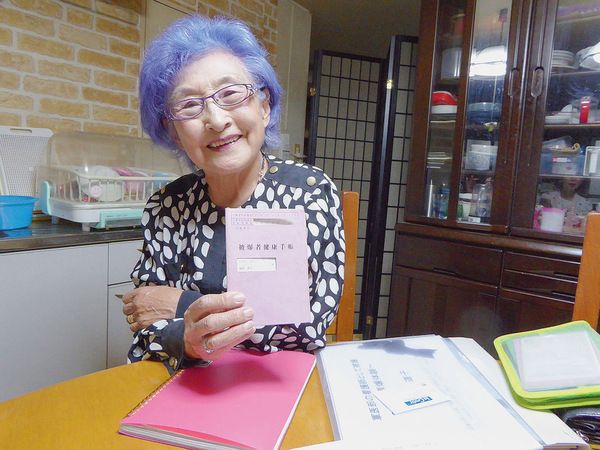(article originally published on August 5, 2015)Mishiko loves the flowers that bloom in front of her small house in the outer suburbs of Tokyo. Very flirtatious at 86 years old, she smiles with tenderness, does not hide her love for bright colors, is full of energy, speaks in a high and confident voice. A revenge on the death that she escaped at the age of 16. “I thought I was dead” And her own way of brightening up a life marked by her terrible status as a hibakusha (“exposed to radiation ”, in Japanese). “I thought I was dead that morning”, will be the first sentence uttered when recalling this disastrous “day of the bomb”, August 6, 1945. “A soldier kicked me” , telling her to move. “I was a high school nurse,” she said. We cleaned guns in the morning and studied medicine in the afternoon. At that time, everyone was waging war at their own level and I wanted to go to the front as quickly as possible, but I was too young. So when the bomb fell and I opened my eyes and the victims numbered in the hundreds, I went to take care of the people. »We can well imagine little Mishiko, among the wounded and burned, concentrated, efficient, determined. A commitment that she will pay for all her life, having been exposed to radiation for several weeks. A family sacrificed 3 km from the epicenter, certainly, but she will keep her nausea, her nosebleeds and, above all, this disease for life bura bura which causes terrible fatigue and exhaustion for several days. His father only survived the radiation for a few weeks. Her mother and her sister, a few months old. Mishiko found herself in Tokyo in September 1945, alone with her little sister, in a city that had been bombed for months, and sold flowers in the street. She puts on her most seductive smile and says to you: “Okay, come on, I’m 86 years old, I’m no longer ashamed today but in Tokyo, I was doing very badly, I couldn’t take it anymore and I I wanted to commit suicide by throwing myself into the sea in Omori…” The fear of becoming pregnant She tilts her head slightly: “A man put his hand on my shoulder, listened to me, took me under his wing and convinced me to live. » He was married and had two children. “I became his mistress, he financed my small apartment, I became pregnant three times but I had to abort each time for fear of having deformed or disabled children because of radiation…” Mishiko becomes pregnant a fourth time, does not abort right away and has a miscarriage in the fifth month: “There, I looked at the dead baby and I saw that it was normal, whole, without visible disability and hope was born in me. »The man agrees to have more children. “I was around thirty years old and I subsequently managed to have three normal children, two girls and a boy! »Being a hibakusha, a tabooShe had the courage to tell them that they were children of hibakusha. Her two daughters told their partners before getting married, her son never admitted it to anyone. A secret.Mishiko is today the grandmother of several “normal” grandchildren, but she has a heavy outlook on her existence: “I had a life of misery as a woman, I would have really wanted to be a man. » In the twilight of her life, she continued to fight for the hibakusha by testifying all over the country. On August 15, she will again go to Hiroshima, seventy years after the capitulation of Japan, to simply say: “ I survived. I am alive. »
Source link
“I managed to have three normal children! »
21


